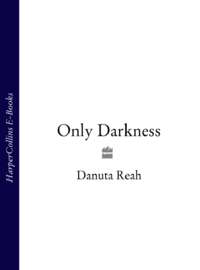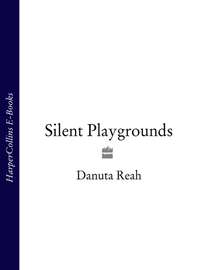
Полная версия
Night Angels
Damn! She took a couple of deep breaths. She ignored the sinking feeling in her stomach, and pulled her mind back from rehearsing disasters. There was no point in worrying about something going wrong, because nothing would go wrong. Joanna would be here. If there were any problems, she would have let Roz know. Repeating this as a kind of mantra, she made herself relax.
The air sparkled with frost. Out beyond the university, out to the west of the city, the Peak District was bathed in the light of the winter sun. Along the top of Stanage Edge, grey millstone grit against the dark peat and the dead bracken, ice glinted, making the ground treacherous. Ladybirds were suspended in the ice, red and black, a frozen glimpse of summer. The road cut across the edge, went past the dams at Ladybower and Derwent, and began the climb to the pass over the hills. The heights of Kinder Scout and Bleaklow looked almost mellow in the light, their deceptive tops inviting the casual walker to wander just that bit too far, just that bit too high.
The traffic was slow on the road to the Snake Pass. It was an uneasy combination of business traffic coming from the west side of Sheffield and leisure travellers who wanted to meander, enjoy the scenery, park and sometimes walk. As the road climbed higher, the traffic became lighter as the landscape became more bleak, the hills more threatening. Walkers who had come to climb Bleaklow from Doctor’s Gate noticed a car pulled off the road into the culvert. An old Fiesta, red, rather battered. Maybe it belonged to an enthusiastic walker, out on the tops early.
Hull, Friday, 8.00 a.m.
The clouds were low and dark, with the threat of rain or snow. The traffic was heavier now, as the rush hour began to build up. The Blenheim Hotel was at the cheaper end of the market, one of a row of Edwardian terraces, converted from residential use years ago. The hotel was a Tardis, small and narrow on the outside, endless and labyrinthine inside. Every door led to another door. Every staircase led to another staircase. The corridors got no daylight, and the lighting was dim. This may have been accidental, or it may have been for reasons of economy, but it was fortuitous. The dim lighting concealed, to a certain degree, the worn, stained carpet, the places on the walls where the paint was cracked or dirty, where the paper was starting to peel. The cleaner was already at work as the last visitors were finishing breakfast in the downstairs room that doubled as a bar. The smell of beer and cigarettes greeted the breakfasters as they came down the narrow flight of stairs from the entrance hall, following the signs that said ‘dining room’. The stairs were too narrow to be a regular flight, were probably the remainder of the back stairs from the days when the hotel had been a private house, from the days when the area had been prosperous, residential and middle class.
Some of the breakfasters had undoubtedly spent the evening before in this room, leaning against the bar or fighting their way through the crowds, and the smell of the beer triggered queasy memories.
Rows of individual cereal packets stood on the bar, with jugs of very orange orange juice. The waitress came to the table and took the orders that arrived in the form of pink bacon, flabby on the plate with a slightly rancid smell, translucent eggs, sausages that oozed as the knife went in. The smell of frying temporarily overlaid the smell of beer and tobacco.
Mary’s husband had phoned in. She’d been in an accident the night before. ‘Been drinking, I shouldn’t wonder,’ Mrs Fry had said to Anna. ‘You’ll have to manage on your own for this morning.’ Her voice was impatient. Anna always managed. She was young, and when you needed work the way she needed work, you managed. Mrs Fry knew that. So now Anna was working on her own, and already the old witch was hassling her, saying she wasn’t fast enough, the rooms weren’t going to be done in time, she’d have to speed up. She muttered Mrs Fry’s litany to herself – ‘Haven’t you got any further, Anna? Hurry it up, Anna!’ – as she worked her way along the passage. She was at the second back staircase now. There were three rooms in this part of the hotel – a different part from the one containing the bar and restaurant. This was at the back of the house and opened on to a garden, more a yard, where the bins were stored, where a few shrubs fought against the litter that was thrown down from the alley that ran behind the terrace. She picked up the cylinder cleaner and carried it down the narrow stairs, knocking it against the walls as she went. There was always the sour smell of damp down here, faint but unmistakable.
The first room was a shambles. Anna screwed her face up. The damp was overlain by a smell of stale alcohol and cigarettes, sweat and old perfume. An empty bottle – whisky – was on the floor by the wastebasket, and a glass with a cigarette end dissolving in the bottom was on the floor by the bed. The ashtray was full. There was a used condom on the bedside table. She pulled new gloves out of the pocket of her overalls. She brought her own gloves these days. Mrs Fry always said, ‘Oh yes,’ when Anna said that she needed new gloves, but somehow the supplies were never replenished often enough. She switched on the bathroom light. Better to know the worst.
She dumped the used sheets and towels on to the floor of the corridor. She couldn’t get the laundry cart down the narrow stairs. She would have to gather the pile up in her arms and carry it. She looked at the towels and made a grimace of distaste. The second room was better. Its damp smell was overlaid with the smell of soap and toothpaste. The bed was disordered, as though the occupant had leapt up in haste, scattering the sheets and thin quilt. There was talcum powder on the carpet, and the print of a bare foot. But the bathroom was respectable, the toilet flushed, the bath mat damp, the towels neatly folded on the rail.
She checked her watch. She had nearly caught up. The rooms were supposed to be done by ten, or Mrs Fry would have something, a lot to say about it. She wouldn’t get rid of Anna though. Anna had managed to keep this job for five months. She didn’t complain to anyone about minimum wages. She was reliable. She’d never had a day off in the time she’d worked for the hotel. She was never late. She kept out of the way of the guests. She always finished her work and she always did it properly. People never complained about the rooms that Anna had cleaned.
Down here in the basement, she could have a cigarette. She could have a break. The extractor fan in the windowless bathroom was roaring away. She reached into the pocket of her overalls and took out her cigarettes and lighter. Five cigarettes a day. Her ration. She lit up, leaning against the bathroom wall, blowing the smoke towards the fan. She hated the smell of smoke.
The last room in the basement was cramped and uncomfortable. She pushed past the closed bathroom door, stumbling on something, and ran her eye over the room. The wardrobe was small, crammed against the narrow back wall next to the French windows that opened on to the yard. The window nets were damp with condensation and stuck to the glass. The dressing table was against the long wall opposite the bed. The gap was so narrow, Anna had to turn sideways to squeeze between them. The room was…She looked round. The bed appeared unused, but there were clothes thrown across it – a woman’s jacket and skirt. A shoe lay in front of the French windows. The other shoe was in the narrow entrance way. She’d trodden on it on her way in. The occupant must not have checked out yet.
Anna stripped the bed and dumped the pile of clean linen in the middle of the mattress. Unused or not, the beds had to be changed. She picked up the shoes and put them in the bottom of the wardrobe, put the skirt and jacket on a hanger. Maybe this occupant was one of the rare visitors who stayed for more than one night. The room was cold, unlike the stuffy dampness of the other basement rooms. A line of cold seemed to run down her back, and a draught blew around her ankles. She buttoned her cardigan up round her neck.
The vacuum cleaner was plugged in from the corridor. She switched it on, but the poor suction told her the bag would have to be changed. More time. She dumped the full bag in her cleaning tray and, with the speed of familiarity, fitted a new one and gave the small expanse of carpet a thorough clean. She ran her cloth over the skirting boards and over the surfaces of the dressing table and the small bedside table. The ashtray was unused, and the tea tray untouched. Something sticky smeared under her cloth, leaving a brown stain. She rubbed it clean. She felt dissatisfied with the room, as though she’d forgotten something important. She looked at the nets sticking to the window, and decided to wipe the condensation off. It might get rid of that…that was it! – that slight taint in the air that made the room feel unclean. For a moment, she thought she smelt burning. A sense of unease, a sickness, began to stir in her stomach.
The window moved as she wiped it, and she realized that it was open slightly. Someone had opened the French windows and left them ajar. That was why it was so cold in here. Why would someone do that? Running away rather than pay the bill? And leave a good suit and a pair of shoes? Someone who wanted fresh air? And leave the room so insecure? She shook her head, puzzled. If there was one thing she’d learnt as a hotel cleaner, it was that you couldn’t explain the way people behaved away from home. She pulled the windows shut, slamming them to lock the bar. The smell was probably coming from the bins in the yard. It would go now that the windows were closed.
Just the bathroom to do now. Anna had left the bathroom until last. She looked at the white painted door off the narrow entrance lobby to the room. It was shut tight. Guests usually left the bathroom door open, the steam drifting out into the room with the smell of soap and shampoo, or less pleasant smells; towels carelessly dumped on beds, on carpets, on chairs. She put her fingers on the door handle. She didn’t want to open that door. Stupid fancies! She pressed the handle down and pushed. The door stayed shut. She frowned. Locked? Now she came to listen, there was a trickling sound and the sound of water running in the pipes. She knocked. Silence. Surely, if there was someone in the bathroom, they would have come into the room and told her to leave the cleaning until the room was free. She checked her watch. She had lost all the time she had gained earlier. She was running late again. Mrs Fry would be down shortly to find out what she was doing. The thought galvanized her, and she pressed the handle down harder and pushed against the door. This door stuck sometimes, she remembered now. But there was a feeling of sick anticipation in her stomach. Something in her mind was trying to make her turn away. Don’t look! Forget!
The door resisted for a moment then flew open. She was suddenly in the bathroom, in the hot, steamy air, and the smell was there, heavy like the smell in the meat market at home. Sour. Cloying. Unclean.
The drip, drip of the water as she creeps through the bushes. The smell of burning is still in the air, but it is a smell of old burning. Ashes, the remains of a fire. Fires mean warmth and parties and music and voices. Voices! She stops, listens. Silence, just the dripping of the water. But coming through the smell of burning is something else, heavy, sweet, rotten.
She can see the house, now. It’s just outside the village, on the edge of the trees. The burning must come from the village, of course, not from her house. She peers through the leaves. She listens for the sound of her mother calling to the children, or her father laughing with the men as they took a break. They’ll all be worried. She’s been gone, what, two nights? Three nights? ‘I’m back…’ she whispers, looking through the leaves at the shell of her house, at the bundle lying half in and half out of the door, tiny on the ground, with the sole of a shoe pointing towards the bushes where she is hiding. The rain must have put the fire out. She can see the water dripping from the eaves and the remains of the roof.
Her foot squashed in something and she looked down, recoiling instinctively, mechanically wiping her foot on the carpet. The floor was wet. Something dripped on to her neck and she jumped, turning round. Condensation was dripping from the ceiling, and the walls glistened. A steady trickling sound came from the bath as though the shower was running, just a bit, turned down very low. The shower curtain was pulled across, pink and translucent. The water ran and trickled, gurgling in the pipes, making the plughole of the basin echo.
Someone was in the shower. That was her first thought. Someone in the shower who ran the water in a slow dribble, someone who ignored the sound of movement, the vacuum, the banging and knocking attendant on cleaning. Someone…The broken door in front of her now. Through there, mother, father, the table where they all sit to eat and talk and the little ones running around and the smell of… Sour, rotten.
Slowly, she put out her hand and pulled the curtain back.
She thought it would be her mother.
The woman – it was a woman, she could still tell that – was slumped in the bath. She looked…broken, like a toy that had been dropped and crushed. Her face – Krisha…? – her face, like Krisha’s doll, they’d trodden on Krisha’s doll and the doll’s face was distorted and smashed, the eye sockets and eyes not quite aligned, the mouth cracked into a feral grin. Krisha’s doll! Water dripped from the woman’s hair as it trickled from the shower. Ribbons. It’s like… Her first thought was that there should have been more blood. Then her legs felt weak and she was cold all over. Her mouth was full of saliva and she was dizzy. She couldn’t stop herself. Her knees thumped on to the floor. She felt the wetness on the floor seeping through her stockings on to her legs. Her hands slipped on the side of the bath, trying to keep her from falling down into it. Don’t let it touch me!
She pulled herself to her feet, turned on the basin tap full blast, splashing water on to her hands and face, on to the floor again and again and then again, trying to make the place clean, restore order, do her job. She pulled the towel off the rack, felt wetness on her hands, let it fall to the floor. There was something floating in the toilet. She flushed it, and again, and again. Her eyes jumped frantically from towel rail, to basin, to tooth glasses, to the bath…No! She stared at the floor, concentrated on the pattern of cracks on the tiles.
There was something on the floor between the lavatory pan and the bath. A piece of paper, no, a card, like a business card, stuck to the wet floor, something that could have fallen out of the pocket of someone sitting there, sitting next to the bath, maybe talking to the person who was having a shower, who was…the sound of the water as she creeps through the bushes… There was a stench of burning in her nostrils. Her stomach heaved. Litter on the floor. Mechanically, she reached down, picked up the card and looked at it.
Then she was back in the bedroom, her legs shaking, holding on to the door, the walls, anything to help her get out of there. She had to find someone, she had to get help, she had to…had to…
She had to think.
She opened the vacuum cleaner and took out the bag she’d put in before she’d cleaned the room. The old bag was full to bursting, but she managed to get it back in without tearing it or spilling too much of the contents. She refolded the new bag and pushed it down into her overall pockets. Her hands were shaking. She scooped up the bedding and the towels and carried them to where the laundry basket was waiting at the top of the basement stairs. She listened. The distant sound of traffic. Footsteps along the corridor overhead. Quick. She had to be quick.
She pulled out some of the bedding and shoved her load down into the bottom of the basket. She piled the dirty linen on top, keeping back a set of sheets and towels. Back down the stairs. She dumped the linen on to the floor where the sheets she had moved had been minutes before. Shut the door or leave it open? Her bag and coat were in the back kitchen. She dithered for a moment, then stepped back into the room, closing the door behind her. She went over to the French windows and pushed down the bar. She wouldn’t be able to close it behind her. Then she was in the yard, past the bins, along the road to the next yard, past another set of bins to the back door. She pushed it open. No one. She grabbed her coat and her shopping bag, and, not waiting to change into her outdoor shoes, hurried down the road towards the bus stop. She flagged down the first bus that came along, and didn’t relax until it was around the corner and heading along the main road.
The woman’s face formed itself in her mind. And Krisha’s doll, smashed on the floor. Soldiers’ toys. The air seemed to smell of old burning. Got to run, got to run.
3
Despite its importance, Roz found the meeting tedious. She was interested in the research side of their work, and though the funding was crucial, she didn’t share Joanna’s taste for the politics and the dealing that the money side generated. She suppressed a yawn and glanced across at Luke, who was leaning back in his chair, his eyes veiled, occasionally jotting something on the notepad in front of him. He looked distracted as well. Roz watched Joanna do her stuff, outlining the financial and the research projections for the team, putting forward her staffing proposals, neatly turning away from anything that strayed into areas where the picture was less rosy. Joanna was good. She was better than good. No one, watching her now, would believe the state of tension she had been in before the meeting started. She had arrived at five to nine, held up because she had been round to pick Gemma up – something they had agreed on Wednesday, apparently, so that Gemma could brief Joanna on the outcome of her trip to Manchester before the main meeting started. Only Gemma hadn’t answered her door, and Joanna had wasted time trying to rouse her before she had concluded that Gemma must not be there.
Roz frowned. It wasn’t like Gemma to be unreliable. What was worse, she hadn’t phoned but had sent an e-mail some time the previous evening. Joanna had found it when she checked her mail before the meeting to see if any last-minute changes or apologies had arrived.
Please accept my apologies for tomorrow’s meeting. The car has broken down and I will have to stay in Manchester tonight. I will contact you as soon as I get back to Sheffield.
Gemma
Joanna had gone thermonuclear. Then she had put it all away for later consideration and taken Roz briskly through the meeting strategies.
Roz let the voice of the representative from the university grants committee fade into a background drone as she studied the other delegates. There was Peter Cauldwell, Joanna’s nominal line manager, who was watching her with a sceptical smile. Whatever Joanna proposed, Cauldwell would oppose. He and Joanna had clashed too many times in the past to be a good team now. One of Joanna’s more urgent plans was to take her group out of Cauldwell’s sphere of influence as soon as she could. There was the grants committee representative. He was the one who could stop Joanna now, today, if she failed to convince him. There was the representative from the Academic Board, whose support was crucial in these early stages, and there was a representative from the vice-chancellor’s office. As Luke had said the other day, ‘All the university brass out to watch Grey nail Cauldwell’s scrotum to the table.’ She caught his eye across the table, and felt a childish impulse to laugh.
Peter Cauldwell was speaking now, his voice that of modulated reason as he explained why Joanna’s plan for autonomy for the Law and Language Group was a waste of time and of valuable resources. ‘There are small departments all over the country who pick up the forensic work,’ he said. ‘And there are a few private firms. We’re an academic institution. We need to use this money’ – the grant money Joanna had managed to get for the group – ‘to build on the research we’ve carried out so far. I’ve no desire to end our forensic work, but I think we can accommodate it within our existing structures.’
Joanna smiled, and Roz again caught Luke’s eye. Under the guise of shifting his position, he ran his finger across his throat. Joanna began running her presentation slides, talking briefly to each one as she did so, demonstrating the amount of money and support she had managed to attract in the last six months. Her charts had been put together so that the income Cauldwell’s group attracted overall was also shown, apparently incidental to the figures that Joanna wanted the meeting to study. Her small team had, according to the chart she was using, attracted more grant-based and commercial funding than Cauldwell’s much larger team had managed in a year. Roz knew that these figures didn’t show the true picture. Peter Cauldwell’s group had been involved with a long-term project that was coming to an end, and the new grants that were coming in were either not yet available or were quietly sidelined into different compartments to ensure that the staffing and equipment budgets were properly supported. Cauldwell, like all good heads of department, was a genius at stretching the funding he got to the maximum. But on paper, his figures looked bad, and Joanna knew it.
By one, it was all over. Roz, headed back towards her office, was waylaid by Joanna who was looking pleased. As she had every right to, Roz thought. Joanna’s main problem now was likely to be a knife in the back. She remembered Cauldwell’s sour face. He wasn’t going to forgive Joanna – forgive any of them – soon.
‘It went well. I think I’ve put paid to Cauldwell’s hash,’ Joanna said cheerfully. ‘We’ll get our extra staffing now, or I’ll know why.’ She looked into the distance, calculating. ‘We’ll need more space. This is just the start.’ Her eyes focused sharply on Roz. ‘What about Gemma?’ she said.
Roz was used to Joanna’s abrupt subject switches. She wondered why Joanna should expect her to know any more about Gemma’s absence than Joanna herself did. ‘I’ve no idea,’ she said. ‘Luke might know something.’
Joanna maintained her intense stare. Roz, used to this quirk, waited for Joanna to formulate her response. ‘Luke?’
Roz sighed. Surely Joanna must at least be aware that some kind of relationship existed between Luke and Gemma. Gemma, academically brilliant, was quiet and self-contained away from her computer and her books. She had come to Sheffield after a spell at a Russian university, and Roz sometimes got the feeling that Gemma – for all she produced work of a high standard – was not committed to what she was doing, had ambitions in other directions. And then she had taken up with Luke.
Though she tried not to, Roz had minded. She and Luke had been friends from the time Roz had first arrived in Sheffield a year ago. They were both unattached, both – apparently – avoiding serious commitment. They had a shared taste in clubbing, in dancing, in music. Luke could be reckless, fuelling his tendency to wild behaviour with bouts of drinking, and his occasional nihilism appealed to something in her. It had been a friendship she valued. And then a few months ago, under the influence of a bit too much music, a bit too much wine, they’d spent a night together, an intimacy that they had always avoided, never talked about, and one she had shied away from afterwards. There had been an awkwardness between them after that. Roz’s promotion to Joanna’s second-in-command had put a further strain on the friendship, and once he became involved with Gemma it had dwindled to almost nothing.





